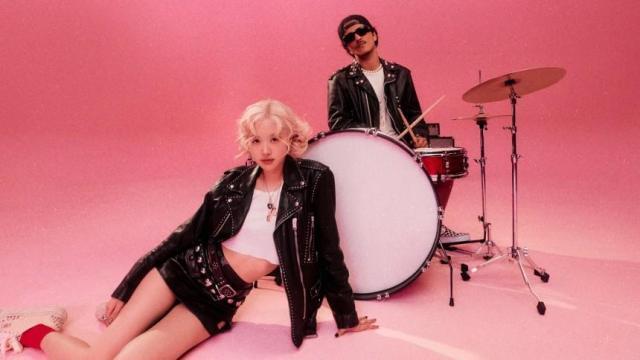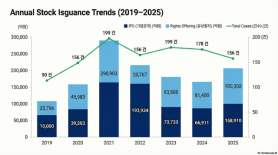
Shares of YG Entertainment tumbled more than 7 percent to 66,650 won ($46) on Monday, the first trading day after the Recording Academy shortlisted Rose’s “APT.” featuring Bruno Mars for Record of the Year, Song of the Year and Best Pop Duo/Group Performance.
Despite the headline-making nominations, IBK Investment & Securities cut its target price on YG to 100,000 won from 120,000 won, citing weakness in third-quarter earnings. Operating profit surged 272 percent on year to 31.1 billion won ($21 million), but still fell short of the market consensus of 34 billion won. The brokerage trimmed its 2025 and 2026 operating profit estimates by 17 percent and 12 percent, respectively, while maintaining a buy rating.
YG Entertainment shares have been sliding sharply in recent weeks after peaking at 109,800 won ($75) on August 21. The rally earlier in the summer was fueled by the breakout success of the Netflix animated film K-Pop Demon Hunters — whose production roster included YG-linked creators — and optimism over a potential easing of Beijing’s unofficial ban on K-pop.
Released on June 20, K-Pop Demon Hunters became an unexpected global hit and set new viewership records. Its original soundtrack, led by the single “Golden,” topped the Billboard Hot 100 on August 11, marking a major milestone for K-pop. The track was produced by The Black Label’s Teddy and 24, alongside U.S. collaborator Lijae. The OST album, distributed by Republic Records, is officially classified under the K-pop genre on the label’s website. Other producers at The Black Label — 24, Kush, and Vince — contributed additional songs including “Soda Pop” and “Your Idol.”
Investor sentiment toward YG also strengthened in early July when BLACKPINK made a full-group comeback for the first time in 22 months. The quartet opened their “Deadline” world tour with two shows at Goyang Stadium on July 5–6, drawing a total of 78,000 attendees. By late August, the group had sold out major venues in Los Angeles, Chicago, Toronto, New York, Paris, Milan, Barcelona and London, with only the Asian leg remaining.
YG did not debut any new acts this year, but its affiliate label The Black Label enjoyed momentum with its rookie group All Day Project. The group debuted on June 23, rose to No. 1 on Melon’s Top 100 chart within three days, and entered the Billboard Global 200 eight days after debut.
Despite these successes, YG’s momentum weakened amid questions over its long-term management strategy and concerns about the cooling of the short-term K-pop hype cycle.
Founded in 1998 by former Seo Taiji and Boys member Yang Hyun-suk, YG is one of Korea’s “big four” entertainment companies and home to BIGBANG, BLACKPINK and BABYMONSTER. The company also holds a 14.55 percent stake in The Black Label, which manages rising groups MEOVV, izna and All Day Project.
Analysts say YG’s outlook remains dependent on its flagship artists and the possibility of China easing restrictions on Korean entertainment.
“BLACKPINK continues to anchor profitability, while BABYMONSTER and BIGBANG’s 20th anniversary comeback could support growth next year,” said Kim Hyun-yong at Hyundai Motor Securities. The brokerage expects BABYMONSTER to launch large-scale tours in the West and Japan, while BIGBANG is confirmed to headline Coachella in April 2026.
Hana Securities analyst Lee Kihoon said the K-pop sector could see record earnings next year if both BIGBANG and BTS resume full-group activities. “If that happens, it would mark an unprecedented performance year for the entire industry,” he said.
Yang Hyun-suk remains YG’s largest shareholder with a 19.3 percent stake, followed by Naver at 8.9 percent, the National Pension Service at 7.2 percent, and China’s Tencent at 4.3 percent. Despite Monday’s sharp decline, NH Investment’s Lee Hwa-jung maintained that YG’s fundamentals remain intact, predicting that structural growth and overseas reopening will support a recovery.
Copyright ⓒ Aju Press All rights reserved.




